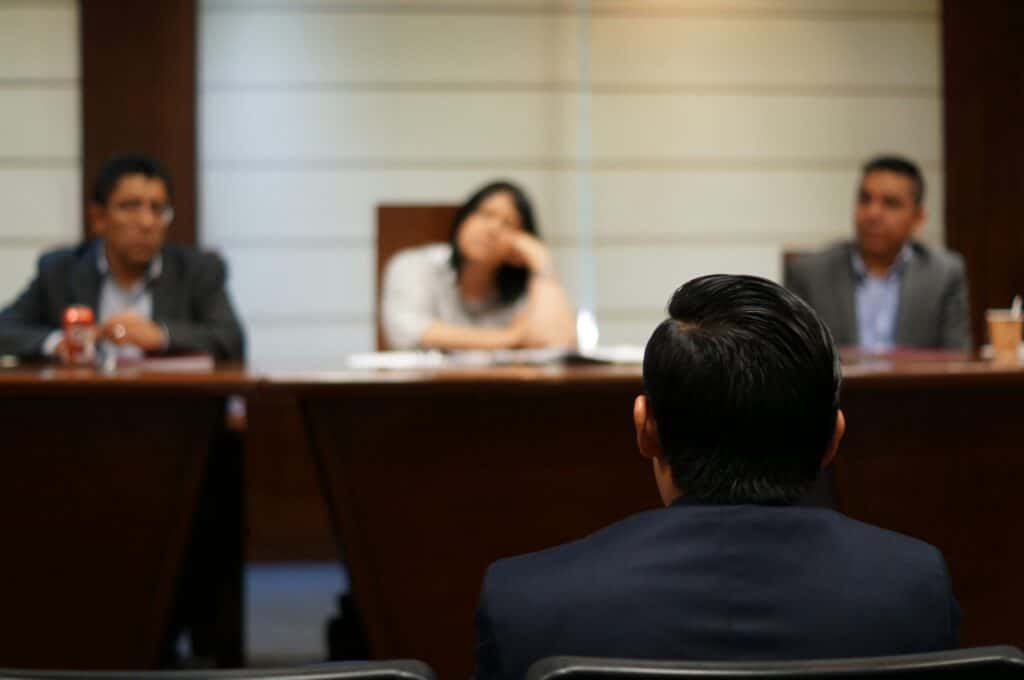If you’re accused of violating probation in Colorado, the law follows a clear process and knowing what to expect can make a big difference in your case. In this post, we’ll discuss how the court evaluates probation violation cases and why speaking with an experienced probation violation lawyer early on is key, so you can protect your rights and take the best possible next steps.
How a Probation Violation Case Starts
Most probation violation cases begin when a probation officer files a complaint, then either issues a court summons for you or seeks an arrest (in certain situations). According to state law, probation officers generally have to issue a summons unless specific risk factors are present. This could include:
- Probable cause that you will fail to appear in court
- Incidents where you leave the state
- A safety risk is present
- A qualifying warrant is active
If an arrest is made, the case proceeds to court for advisement and scheduling. Because the rules for summons and arrests can be complex, many people choose to consult an attorney at this point to better understand their options and obtain legal help for probation violations.
First Court Appearance
At your first appearance or when the hearing begins (whichever occurs first), the judge will advise you of your rights, explain the alleged violations, and make clear that there is no right to a jury in a probation revocation proceeding. You will then need to enter a plea to the alleged violation. Speaking with a probation hearing lawyer can help you navigate this stage effectively.
The Legal Standard at a Revocation Hearing
If you deny the allegations of violation, the court will hold an evidentiary hearing. The following items are covered during those proceedings:
- Burden of proof: The prosecution must prove a probation violation by what’s called a “preponderance of the evidence,” which means the evidence presented points to a violation more likely than not.
- Alleged new crime: If the alleged violation is that you committed a new criminal offense, that new offense has to be proven beyond a reasonable doubt.
- Evidence: The court may consider evidence with probative value, so long as you have a fair opportunity to rebut the information.
- Related criminal case pending: If a criminal case is already underway, the court may postpone the revocation hearing until the related criminal case ends.
Because probation revocation hearings involve different standards of proof than regular criminal cases, discussing your situation with an attorney can help clarify how these standards may affect your defense and explain how to fight a probation violation charge.
Timing Requirements the Court Follows
When you are held in custody on a probation violation complaint, the hearing is typically supposed to take place within 14 days (approximately), unless the court has reasonable cause to alter it or you request more time.
After the hearing commences, the court has to decide (usually within around seven days) whether to continue probation or revoke it.
What the Judge Can Do If a Violation Is Proven
If the judge finds a violation, the court can either continue your probation, sometimes with modified terms, or revoke the probation. When the judge decides to revoke probation, they may then impose any sentence that could have been set at the original sentencing. Speaking with legal counsel can help you understand the possible outcomes and prepare for what the judge might decide.
Probation Violation: Next Steps to Protect Your Rights
Every situation is unique, and when it comes to probation violations, it’s essential to follow the correct steps. If you find yourself in this situation:
- Read the complaint carefully. The complaint lists each alleged condition you violated and sets your court date. Missing that appearance often leads to additional consequences, so make sure you attend.
- Verify whether the claim involves a new offense or a technical issue. This matters because a new-law allegation carries the higher standard of proof beyond a reasonable doubt. At the same time, technical violations, such as missed appointments, positive tests, or unpaid fees, are judged by the preponderance of the evidence.
- Gather documents that speak to compliance or progress. Calendars, treatment attendance, negative test results, payment records, employment or school verification, and proof of transportation or medical issues can all be relevant, given the court’s more flexible evidence rules when it comes to revocation hearings.
- Address missed payments early. If the allegation involves unpaid fees, restitution, or costs, the statute recognizes nonpayment as evidence of a violation. Be sure to bring records showing any payments you made, ability-to-pay issues, or changes in your circumstances.
- Ask about scheduling if a new criminal case is pending. Courts may put off the revocation hearing until the new criminal case is resolved.
- Arrive ready for the advisement. Expect the judge to advise you of your rights and to ask for your plea to the violation. Remember, there is no jury for these hearings in Colorado.
What Happens If You’re Arrested on a Probation Hold?
Colorado law permits arrests in specific situations, such as when an arrest warrant is in effect. In other situations, state statutes direct officers to issue a summons instead of arresting you.
Knowing which provision applies to your circumstances can help you take informed steps as you prepare for court. If you are taken into custody, contacting an attorney as soon as possible can be critical to protecting your rights and preparing your case.
Moving Ahead After a Probation Violation Allegation
Facing an accusation of violating probation is a serious matter, but it follows a clear legal process. Understanding those rules, keeping your records organized, and knowing what to expect in court can help you navigate the situation more effectively. While every case is unique, being prepared and informed is a crucial step in moving forward.
Consulting with an attorney can also give you guidance on your specific case and help you put your best foot forward throughout the process.

